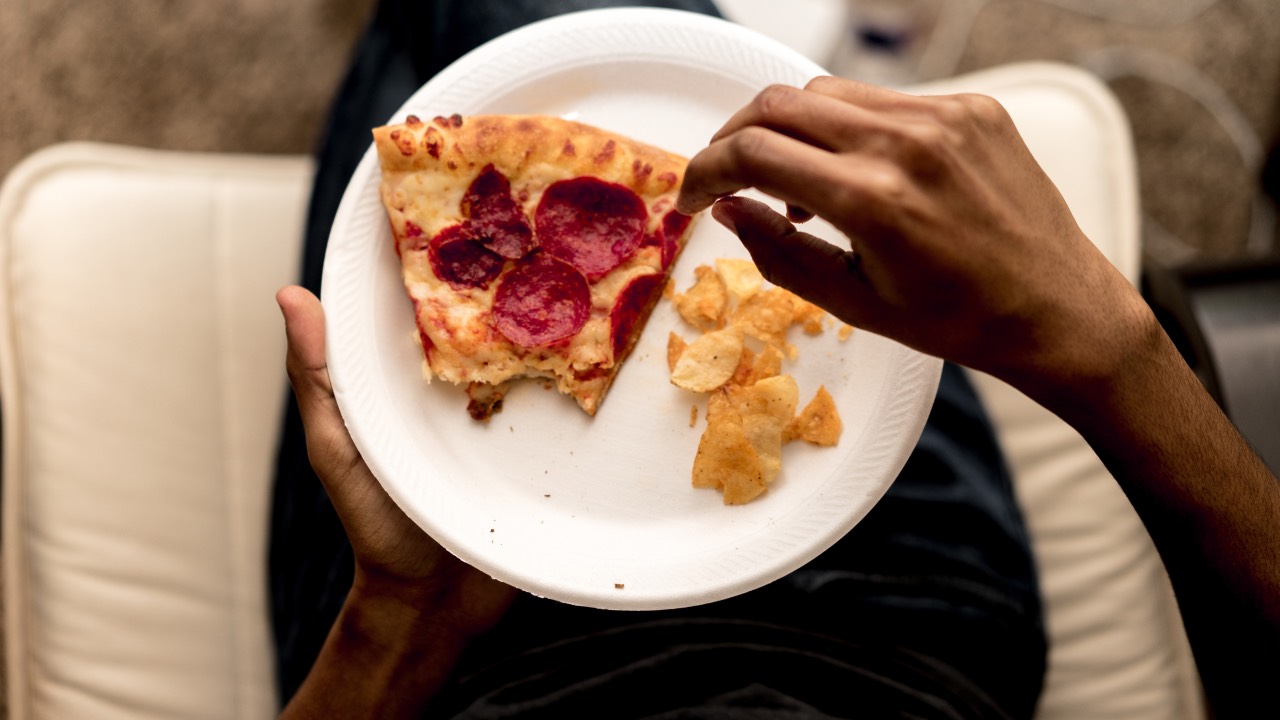
Why do I keep eating when I can feel that I am full?
Oct 09, 2025
I used to feel the heavy, deep density in my stomach from too much food. The weight of the bowls of cereal pressing down internally. I knew I was full -- there was no question. You can't eat as much as I did and claim "I'm just still hungry."
Right?
That's what I thought.
So if you're definitely FULL but you still want more food -- that has to be gluttony. No?
No. It most definitely doesn't have to be.
It's frustrating because it feels irrational, but what’s actually happening isn’t confusion or lack of control. It’s something I call collective hunger — or what could also be called cumulative hunger.
If the body has an underlying hunger from a more chronic sense of deprivation, it doesn’t matter if you’re full in the moment. Your body is like, “Let’s overstock while we can get it, because there are times when we’re hungry and we don’t get it.”
Even if you’ve eaten a big meal, the body might still be making up for days, weeks, or even years of not getting enough — not just food, but enough safety around food. This is why so many people who “eat normally” on paper still end up feeling out of control. The body tracks safety and consistency over time.
Collective hunger typically happens to people who…
- are under their weight set range
- do intermittent fasting
- go to bed hungry
- eat in a calorie deficit that’s too aggressive for their body’s sense of safety
- eat less than they need at each meal
- use exercise to mask hunger cues
- have a history of significant weight cycling
- only eat "healthy" foods and overly suppress access to joyful foods.
When the body has been trained to expect scarcity, even subtle forms of restraint (including seemingly innocuous things like skipping snacks, delaying breakfast, mentally calculating “shoulds," going to bed hungry, exercising or drinking coffee to suppress inconvenient hunger cues, eating what your colleague eats because she's so thin and gosh darn it if she can do it you can do it), it signal threat. So when food is right in front of you, your body’s survival wiring is pushing for overstock “just in case.”
It doesn't care if you're full in the moment; it needs an overage for all the other times.
This is not emotional eating.
This is a biological override.
So what do you do about it?
If you’ve been eating past fullness even when you can feel that you’re full, your body isn’t betraying you, it’s trying to get needs met. The solution isn’t to clamp down harder on fullness cues; it’s to help your body feel consistently fed enough that those cues can normalize again.
1. Understand the backlog. If you experience chronic periods of eating past fullness and you also know that you are restricting sometimes, assume that you are in a biological hijacking. Start by assuming your body is still replenishing from previous restriction, even if you’ve been eating “normally" more recently. It can take months for appetite and fullness hormones to stabilize. Eating to fullness regularly (and sometimes beyond it, YES, this is normal!) is part of recovery. Not a detour from it. If you need help figuring out if you are restricting or not, apply for a single session with me to help figure out a plan (or book a discovery call to set up long-term support).
2. Build reliability through anchor meals. Collective hunger doesn’t resolve with one big meal. It heals through hundreds of consistent, unthreatening eating experiences. Eat at regular intervals. Stop skipping meals “to make up.” The more predictably you feed your body, the less it will hoard. More information about anchor meals right here!
3. Increase fun foods intentionally (not only eating them once you feel out of control). Many people say that they eat "treats" or desserts all the time, so they can't be restricting. But are those foods part of your intentional eating, or are you mostly eating them once you've already "blown it"? The psychological impact of scarcity cannot be overemphasized. If your nervous system perceives a restriction, it will try to find it once the floodgates open and food is around. Include sweet or typically forbidden foods into your actual routine. Like on purpose.
4. Reduce overall deprivation load. Collective hunger can come from emotional or sensory scarcity too. Being over-worked, under-rested, or constantly performing “discipline” puts the body in a state of physical turbulence AND psychological burnout. The body interprets all forms of deprivation as energy debt. Rest, pleasure, and autonomy count as refeeding too.
5. Somatically "code" the sensation of fullness. As you are eating "too much," resist the temptation to check out on the experience and go into guilt-mode. This only brings you further into dysregulation. Instead, acknowledge that you might keep eating but start paying attention to what fullness or over-fullness feels like. Be present with it. The more present you are with your body in fullness, the more the nerves system can register that you are, in fact, full. If we continue to self-abandon during these eating periods, we aren't affirming the "yes I have enough" message.
6. Consider trauma, too. If you know you aren't restricting and you still find yourself completely hijacked by food (including chronically using food to numb out or dissociate), consider that you might need somatic based therapy instead of just focusing on the food. Food may be the only way your body knows how to find safety in periods of dysregulation. This is the intersection of my somatic work + food recovery work. We need to build a felt sense of safety in the body first and foremost.
7. Have compassion and patience with this. Look, I know better than anyone that even when you know the things, you fight them. I wanted to find the loopholes, to figure out a way to get around the "I can't restrict if I want to stop binge eating" thing. I figured that because I wasn't underweight, I was exempt from the rules. The idea that I had to compromise what already felt unfair (shouldn't this approach only be for people who are underweight or anorexic?!) gave rise to my inner rebel and rage. It's hard, the whole thing is hard. Have compassion for the many Parts of you that feel like you don't want to know this.
The irony, though, is that once we nourish ourselves regularly and with less resistance and guilt, the body learns to trust us. Feeling more in control becomes available once this part is respected. It can take months and months to recalibrate -- but if you don't, you'll just be stockpiling more collective hunger for later. It doesn't go away on its own.
Your job isn’t to eat “less mindlessly.”
It’s to make food feel less scarce.
Safety first. Refinement later.

